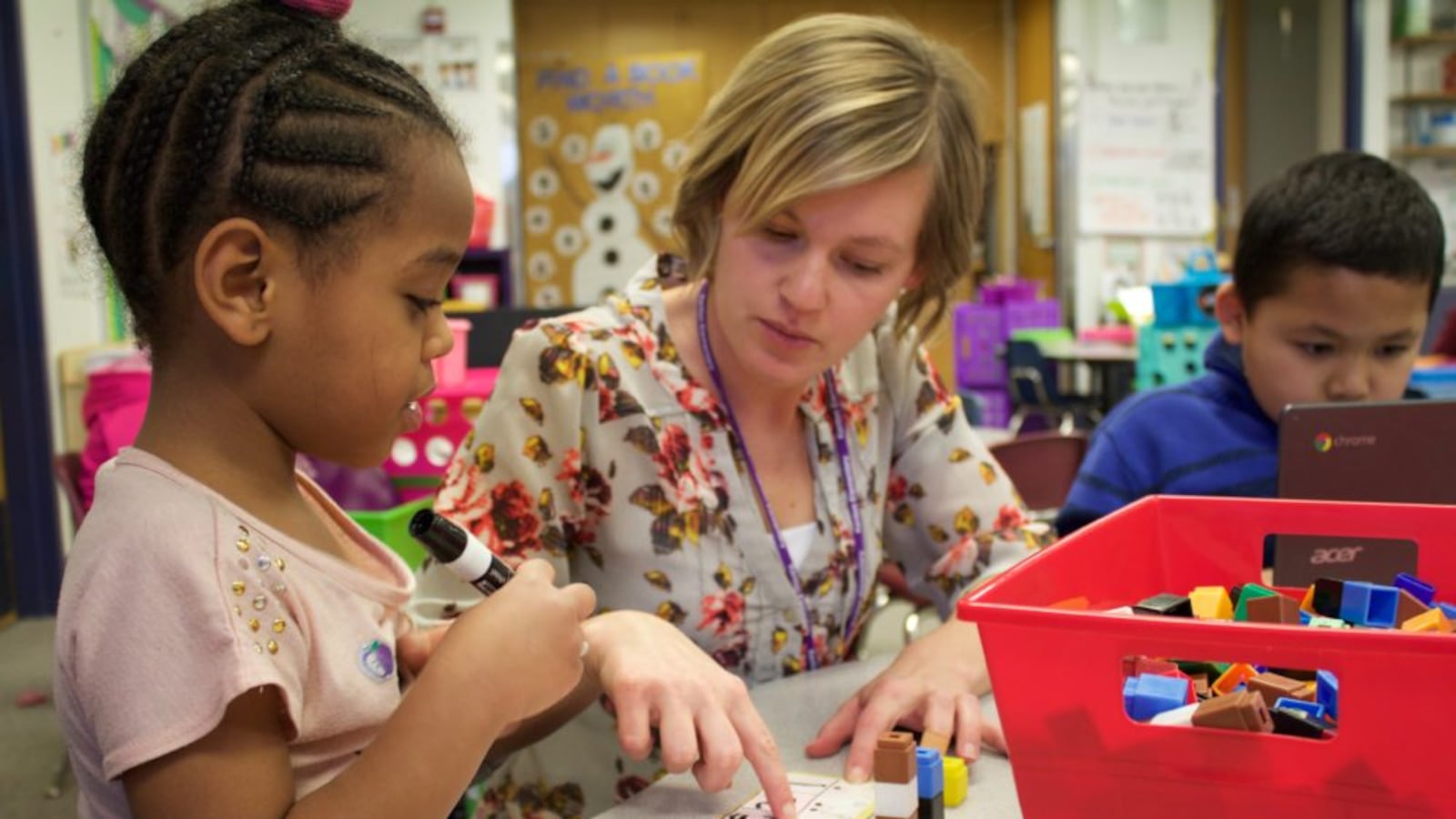The influential Joint Budget Committee gave its endorsement Tuesday to funding full-day kindergarten by next fall, but doing so could require “tightening our purse strings” and not funding other initiatives, lawmakers said.
Funding full-day kindergarten is a top legislative priority of Colorado Gov. Jared Polis, who campaigned on making it available in every district at no cost to families. Many education advocates also rallied behind the idea.
Colorado currently reimburses school districts for a little more than half the amount it pays for older students, and many districts charge parents tuition of several hundred dollars a month to make up the difference. Other districts cover the cost out of their general budgets, with federal funds for high-poverty schools, or with dedicated local taxes. Some districts only offer half-day kindergarten.
Members of the budget committee and other Democratic lawmakers repeatedly expressed concern about the broader budget impacts of paying for full-day kindergarten in one year, without a phase-in.
Nonetheless, as Joint Budget Committee members finalized their proposed state budget this week, they voted 5-1 to set aside $185 million for full-day kindergarten, with the implementation plan to be laid out in a separate bill expected to be filed this week.
That’s about 80 percent of the $227 million for kindergarten in Polis’ January budget request. The larger amount would have covered every eligible kindergartener. However, the governor has said kindergarten attendance will remain voluntary. Budget committee members decided to set aside an amount that assumes not all eligible students will enroll.
“We all understand and agree that full-day kindergarten is a great policy,” said state Rep. Daneya Esgar, a Pueblo Democrat and vice-chair of the budget committee. “We think our kids deserve that. We know that early childhood investments go a long way, and we figured it was time to figure out a way to come through and really fund this.
“But we wanted to fund this in a way that made sense for the first year.”
Right now, about 50,000 kindergarten students — roughly 80 percent — attend full-day programs and another 13,000 attend half-day programs. Eventually, education advocates and Polis hope that most children will attend full-day programs. Students who attend full-day kindergarten enter first grade more prepared and tend to have better academic outcomes.
The budget committee has not yet made a decision on $25 million for implementation costs that the governor requested or on 3,000 new preschool slots, another priority of Polis’.
Funding full-day kindergarten should free up as many as 5,000 preschool slots in the Colorado Preschool Program, funds from which are currently being used for kindergarten.
“We can’t do both,” state Sen. Rachel Zenzinger, an Arvada Democrat, said of the preschool slots.
Zenzinger has been one of the most critical voices on the kindergarten question, despite ultimately voting yes for the budget set-aside. She said kindergarten is important, but it might not deserve to “go to the front of the line” when many other needs, from special education to services for aging Coloradans, also need more money.
Immediately after agreeing to the kindergarten money, committee members approved a series of cuts to programs that they had previously agreed to fund. They face more tough decisions before finalizing the budget, which will get introduced in the Senate on Monday.
“We are tightening our purse strings,” Esgar said.
The no vote came from state Rep. Kim Ransom, a Douglas County Republican, who said she is concerned about the long-term sustainability of funding kindergarten.
The proposal will be funded by additional revenue generated by rising property values. With local school districts bringing in significantly more property tax, the state doesn’t need to backfill as much revenue. The governor’s budget director has predicted that property tax revenue will be stable at least through 2021.
And after that?
“I want to be hopeful,” Esgar said. “I want to be hopeful.”

